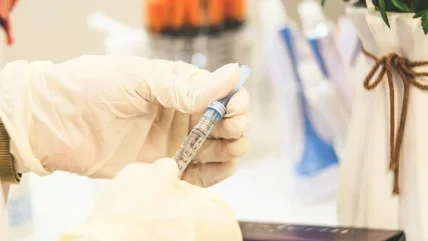
Sanofi said that the Phase 3 LIBERTY-CUPID Study C of Dupixent (dupilumab) has confirmed significant improvements in itch and hives for patients with chronic spontaneous urticaria (CSU).
Dupixent is a fully human monoclonal antibody. It is already approved to treat patients with atopic dermatitis, asthma, chronic rhinosinusitis with nasal polyposis, eosinophilic esophagitis, among others.
Dupilumab is being developed by France-based Sanofi and Regeneron under a global collaboration agreement.
In January and February, Japan approved and launched Dupixent for adults and adolescent CSU patients based on Study A results.
This latest trial confirms findings from the earlier Study A, the first Phase 3 trial of Dupixent for CSU.
LIBERTY-CUPID Study C focused on patients with uncontrolled, biologic-naïve CSU who were also on antihistamine therapy.
As per the findings, the study achieved its primary and key secondary goals.
After 24 weeks, Dupixent demonstrated a significant improvement compared to placebo.
Specifically, patients receiving dupilumab experienced a greater reduction in itch severity from baseline compared to a placebo.
Dupixent also resulted in a reduction in urticaria activity severity, compared to a placebo.
Additionally, 30% of Dupixent-treated patients reported no urticaria, compared to 18% of those on placebo.
Furthermore, the safety results were consistent with the known safety profile of dupilumab in its approved dermatological indications.
Sanofi chief medical officer and development global head Dietmar Berger said: “The positive pivotal data from this study reinforce the potential of Dupixent to offer a new treatment option for the many people suffering from chronic spontaneous urticaria who do not respond to standard-of-care antihistamines.”
Study results will be submitted to the US Food and Drug Administration (FDA) as part of the supplemental biologics application for Dupixent in CSU.
Sanofi and Regeneron are also assessing dupilumab in Phase 3 studies for various diseases linked to type-2 inflammation or allergic processes.
Concurrently, the French pharmaceutical firm announced results from an ADEPT study that assessed dupilumab for bullous pemphigoid.
The trial achieved its primary and all key secondary endpoints. It also showed significant improvements in disease remission and symptoms in a BP study.
Dupixent previously received an orphan drug designation from the FDA for bullous pemphigoid.






